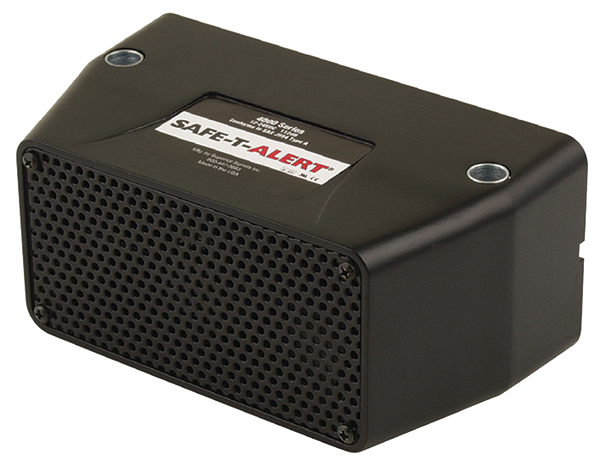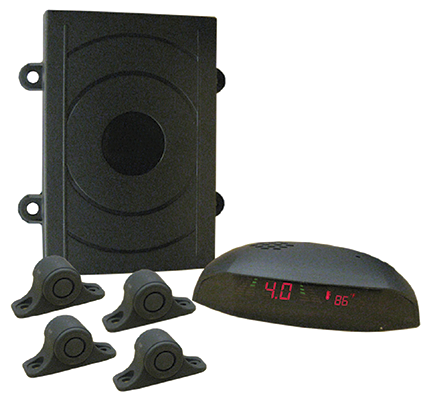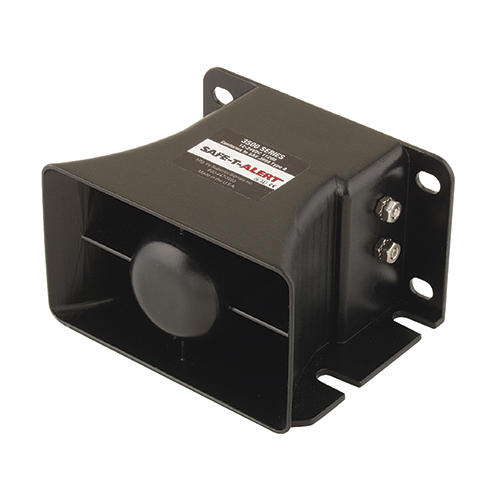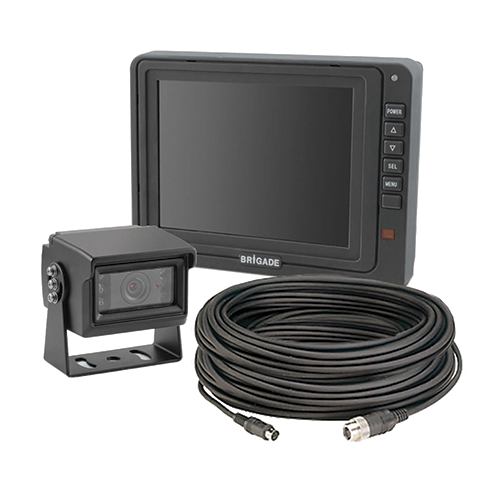To help minimize the risk of accidents, it is essential that you create a clear culture of safety that includes everyone working in and around the vehicle. A successful safety culture starts with training and ends with proper equipment.
Those working in the waste management industry play an essential role in how we keep our homes and communities clean and safe. Your employees routinely work in challenging environments and experience a variety of safety hazards—one of the most dangerous is being struck by a vehicle that is backing up.

Photos courtesy of Superior Signals.

According to the National Safety Council, 25 percent of all accidents can be contributed to unsafe backing practices. Waste collection and recycling trucks are large pieces of equipment that require special skill and training to operate. Driving these trucks in reverse requires care and special safety equipment to ensure that pedestrians, drivers and those working around the vehicle are safe.
To help minimize the risk of accidents it is essential that you create a clear culture of safety that includes everyone working in and around the vehicle. A successful safety culture starts with training and ends with proper equipment. Every employee should be trained on how to safely operate the vehicle and how to use the various safety procedures and equipment. One of the most essential pieces of safety equipment that should be on every vehicle is an audible warning device.
Back-Up Alarms
To be most effective, backup alarms need to be around 10 decibels above the ambient noise of its surroundings. Since noise levels can vary depending on the time of day or activity, it can be difficult to select the right back-up alarm with the correct decibel level for your equipment. That is why a self-adjusting alarm is often the best choice to be the most effective in a wide range of environments. A self-adjusting back-up alarm listens to the ambient noise in the surrounding environment using a built-in microphone and automatically adjusts its sound output to be louder than the surrounding noise.
Before each shift, it is important to do a safety check on each vehicle. During this check, backup alarms should be tested to make sure they are working properly. If they are damaged or malfunctioning, they should be replaced immediately.


Even if you have a fully functioning back-up alarm, there are challenges that employees face when working around them all day. When employees are constantly bombarded with repetitive sounds or flashing lights, they can start to experience alarm fatigue. As a result, workers may become desensitized to the safety alerts they are hearing and simply stop paying attention to the alarm and tune it out, subconsciously. Those suffering from alarm fatigue often fail to respond appropriately to warnings and are more likely to be involved in a serious accident.
Below are some helpful ways to combat alarm fatigue and help to make sure your safety signals are being heard:
1. Training is Key. It is vital that all employees receive the training they need to know what to do when they hear a backup alarm. It is also important that if you incorporate a new piece of equipment or add new employees to the team that everyone receive the proper amount of training. Training gaps can add up to a dangerous lack of awareness about what a bell, whistle, or alert can mean.
2. Avoid Distractions. When working in a challenging environment, it is essential that everyone working around the equipment is paying attention to not only the job at hand, but also the environment around them.
3. Use Proper Safety Gear. In addition to safety vests, workers often use hearing protection. However, it is important to be sure that those working around equipment can still hear the alarm when hearing protection is being worn.
4. Have a Back-Up Plan. In addition to a backup alarm, trucks should use backup cameras. Cameras help provide all-around visibility during operations. They heighten the driver’s awareness of workers and pedestrians near the vehicle. Using a back-up camera system, drivers can quickly assess conditions to the rear, discovering potential hazards faster. | WA
The Essentials of Backing Up Safely
In addition to using back-up alarms and cameras as part of your overall safety system, it is also important to follow these essential best practices to help you back up safely.
1. Use a spotter. Because of the multiple blind spots, a spotter is often necessary when driving a vehicle in reverse and the driver does not have a full view of the working area.
2. Every member of the work crew should wear high visibility clothing. This is especially true for the spotter.
3. The spotter should maintain eye contact with the driver through the window or side mirrors and use agreed upon signals to direct the driver.
4. Be sure that all mirrors are adjusted for optimal visibility.
5. Eliminate unnecessary backing. While it is impossible to avoid backing up all together, drivers should try to plan their route to keep backing up at a minimum.
Superior Signals is a leading manufacturer and distributor of quality warning and safety products that serves OEM and aftermarket customers domestically and internationally by providing quality vehicle safety lighting and traffic control products for demanding on- and off-road markets. Their industry knowledgeable and dedicated sales representatives are here to assist you in your product requirements for a variety of vehicle and equipment components. SSI has been providing quality products for over 45 years and is focused on your complete customer satisfaction. If you are in the market for a quality back-up alarm or back-up camera to create a safety system for your equipment, then turn to Superior Signals Inc. No matter the tone, decibel level or wiring options, they have the solution for any machine. In addition to wide variety of back-up alarms and cameras, SSI also offers a selection of roadside safety products, warning lights, work lights, decals and more to make sure your equipment and employees are safe. For more information, call (800) 447-3693 or visit www.superiorsignals.com.
